Dear Zazie, Here is today’s Lovers’ Chronicle from Mac Tag. What can we call you? Can we call you? Rhett
The Lovers’ Chronicle
Dear Muse,
© copyright 2021 mac tag/cowboy coleridge all rights reserved
© copyright 2020 mac tag/cowboy coleridge all rights reserved
oh sorry,
have to avoid
the “L” word
call it, a search
for unresolved years
time left in the rear view
through which now i see,
connectin’ you and me
when you are near,
across lost chances
always, to be near you,
when we dream and so
believe, which leads to
here, where we are
for this we live
for this we, well
you know, the “L” word
© copyright 2019 mac tag/cowboy coleridge all rights reserved
“Do you collect anything?”
books, words, photographs,
dreams, memories of you
“Do you want me?”
call me
i will tell you
if two outta three ain’t bad,
what would one outta three be
oh, nice try, need
but thank you, no
not havin’ any
somethin’ inside
will not let it be
to find that
would require
openin’ up
and pourin’ out
but be careful
if you go there
how it will end
is well known
© copyright 2018 mac tag/cowboy coleridge all rights reserved
Another from the archives. Written in the days when only you spoke to me. Before the Dark Muse took control. If only you could……
Call Me
Call me a Renaissance Man – Thank you.
Call me a gentleman – Of course
Call me a scoundrel – Well…
Call me a cowboy – Proudly
Call me a poet – You know it
Call me a philosopher – I think, therefore…
Call me a flirt – Probably
Call me a dreamer – Decidedly
Call me a lover – That is what I was meant to be
Call me a man for all occasions – Count on it
Call me old fashioned – Really
Call me romantic – Hopelessly
Call me funny – Hopefully
Call me wonderful – Would you
Call me woeful – At times
Call me lonely – Only most of the time
Call me spiritual – I am tryin’
Call me friend – Always
Call me flawed – Without a doubt
Call me ordinary – Them’s fightin’ words! ! !
© Copyright 2012 Cowboy Coleridge All rights reserved
Today is the birthday of Frederic Edwin Church (Hartford, May 4, 1826 – April 7, 1900 New York City); landscape painter. He was a central figure in the Hudson River School of American landscape painters, perhaps best known for painting large panoramic landscapes, often depicting mountains, waterfalls, and sunsets, but also sometimes depicting dramatic natural phenomena that he saw during his travels to the Arctic and Central and South America. Church’s paintings put an emphasis on light and a romantic respect for natural detail. In his later years, Church painted classical Mediterranean and Middle Eastern scenes and cityscapes.

Frederic Edwin Church
|
Gallery
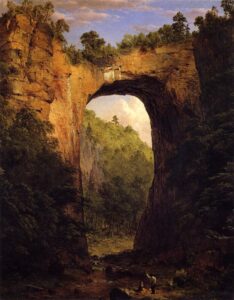
L’Arche naturelle (1852)
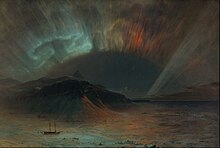



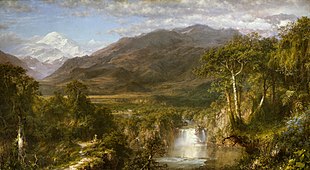

-

The Andes of Ecuador, c. 1855, Honolulu Museum of Art – this image is a sketch for the final work – which is at the Reynolds
-

Cotopaxi, (1855)
-
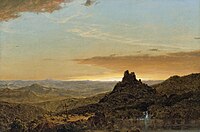
Cross in the Wilderness, 1857
-

Morning in the Tropics, ca. 1858, The Walters Art Museum, Baltimore
-

Twilight in the Wilderness, (1860), Cleveland Museum of Art
-

Oosisoak, (1861)
-

Rainy Season in the Tropics, 1866, Fine Arts Museums of San Francisco
-
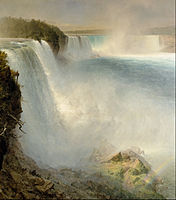
Niagara Falls, from the American Side, 1867
-
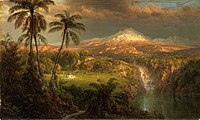
Passing Shower in the Tropics, 1872, Princeton University Art Museum
-

Aegean Sea, c. 1877, Metropolitan Museum of Art
-

Parthenon, 1871, The Metropolitan Museum of Art
-
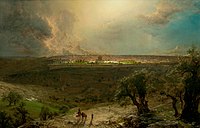
Jerusalem from the Mount of Olives, 1870, The Nelson-Atkins Museum of Art
-

El Khasne Petra, 1874, Olana State Historic Site
-

Niagara Falls,1857, Frederic Edwin Church, National Gallery of Art, Washington, DC.
-

The Icebergs, 1861, Dallas Museum of Art
Today is the birthday of Thomas Wilmer Dewing (Boston, May 4, 1851 – November 5, 1938 New York City); painter working at the turn of the 20th century. Schooled in Paris, Dewing was noted for his figure paintings of aristocratic women. He was a founding member of the Ten American Painters and taught at the Art Students League of New York. The Art Museum at the Smithsonian Institution has a room dedicated to his works. He was the husband of fellow artist Maria Oakey Dewing.
Gallery
 |

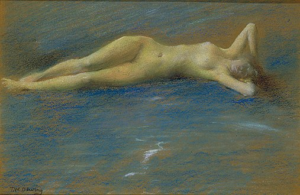
Reclining nude
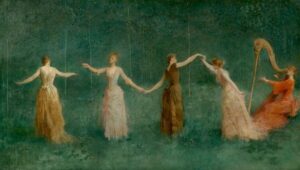


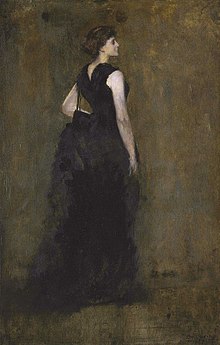

Mac Tag
Follow us on twitter @cowboycoleridge

No Comments on "The Lovers’ Chronicle 4 May – call me – art by Frederic Edwin Church & Thomas Dewing"